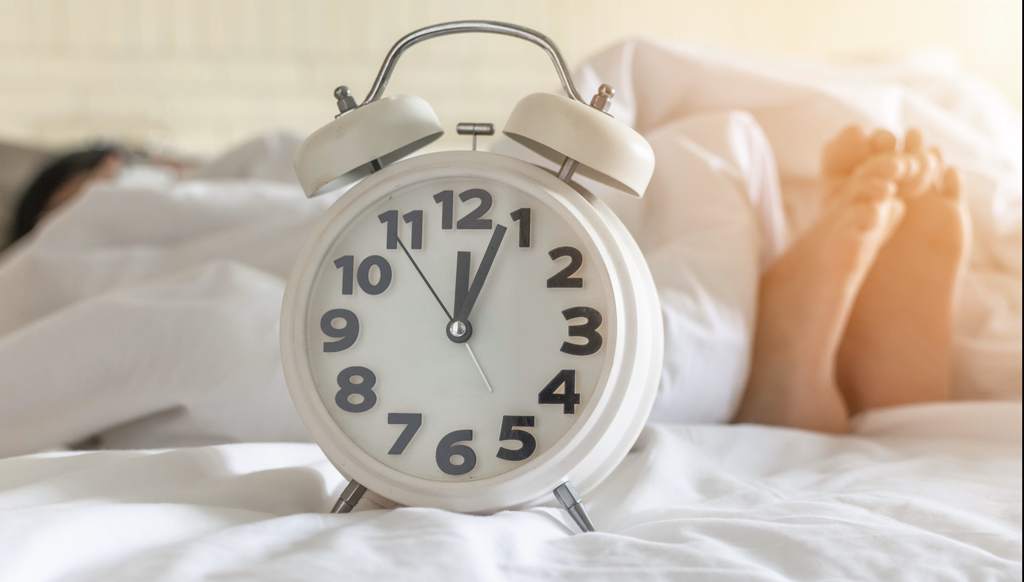The importance of sleep
how much sleep do you get?
World health Organization and the National Sleep Foundation both stipulate an average of 8hrs of sleep per night is required to function optimally. Alarmingly only 2/3 of adults in developed countries fail to meet this requirement.
understanding Why we sleep?
- Sleep helps to optimise all our major organs helping them function optimally and become detrimentally impaired when we don't get enough.
- Sleep strengthens and restocks the armoury of our bodies immune system helping us fight off sickness and disease.
- Sleep reforms the bodies metabolic state regulating insulin & blood glucose levels.
- Sleep increases our ability to learn, memorise and make logical decisions.
- Sleep regulates our appetite.
- Dreaming helps our brains process emotions.
What happens if we don't get enough sleep?
- Moderate reductions of sleep for as little as one week disrupts blood sugar levels so profoundly that you would be diagnosed as pre diabetic.
- Increases appetite (impairs concentration, surpasses Leptin and increases ghrelin another hormone makes you feel full) making you want to eat more and more despite being full.
- Putting your body in a caloric deficit (dieting) without getting enough sleep is useless, typically most the weight you lose will come from muscle mass.
- Consistently sleeping less than 6hr per night severely impaired the immune system doubling your chance of getting cancer.
- Increased chance of developing Alzheimer’s disease.
- Limited sleep increases likelihood of coronary artery disease.
- Sleep disruptions exacerbates all major psychiatric disorders (Anxiety, Depression & Suicidality.)
what can you do to improve your sleep?
Make Sleep a priority.
- Sleep according to your circadian rhythm. Be consistent go to bed at the same time and wake up at the same time, even on weekends.
- Athletes need more sleep 7-10 hrs of quality sleep per night.
- Sleep in a totally pitch black room, turn your room into a bat cave, use blackout blinds and tape over any LED lights with electrical tape.
- Sleep in a quiet room, turn off any electrical devices or use ear plugs.
- Reduce EMF (Electro Magnetic Frequency) Turn all Wifi and Bluetooth devices off, put your phone on airplane mode.
- Avoid taking stimulates after midday, Caffeine has a half life of 5-6hrs (if you have 40mg caffeine your body will process 20mg within 15-45mins but the remaining 20mg will take 5-6hr to eliminate from your system)
- Avoid blue light 1-2hrs before bed, (bright lights prevent melatonin secretion) turn all bright lights off before bed, use candlelights or swap bright LED lights for red lights no TV or Mobile Phones. Blue light blocking glasses will help if it's hard to avoid.
- No Children or Pets in Bed, a slight move or noise can disrupt DEEP or REM sleep.
- Supplements that may help sleep include; Melatonin, Magnesium, GABA, 5-HTP & CBD Oil.
Different Stages of Sleep
1. Wakefulness:
American Academy of Sleep Medicine (AASM): https://aasm.org/
National Sleep Foundation: https://www.sleepfoundation.org/
National Institute of Neurological Disorders and Stroke (NINDS): https://www.ninds.nih.gov/
- Period of consciousness and alertness.
- Brain activity characterized by beta waves.
- Associated with active thinking, problem-solving, and sensory perception.
- Transition from wakefulness to sleep.
- Light sleep lasting several minutes.
- Theta waves appear on EEG (electroencephalogram).
- Easy to be awakened; may experience hypnic jerks.
- Slightly deeper sleep than Stage 1.
- Appearance of sleep spindles and K-complexes on EEG.
- Body temperature decreases, heart rate slows, and muscle activity decreases.
- Still relatively easy to wake up from this stage.
- Transitioning to deep sleep.
- Delta waves (slow-wave sleep) become prominent on EEG.
- Physiologically restorative stage.
- Difficult to awaken; crucial for physical restoration, growth, and repair.
- Dreaming is prevalent, and brain activity resembles wakefulness.
- Rapid eye movements, increased heart rate, and irregular breathing.
- Paralysis of voluntary muscles (atonia) prevents acting out dreams.
- Vital for cognitive function, memory consolidation, and emotional regulation.
American Academy of Sleep Medicine (AASM): https://aasm.org/
National Sleep Foundation: https://www.sleepfoundation.org/
National Institute of Neurological Disorders and Stroke (NINDS): https://www.ninds.nih.gov/
How Stressed are you? How are you managing stress?
In the pursuit of a healthy and fulfilling lifestyle, it is crucial to recognise the significant impact that stress can have on our overall well-being. As a personal trainer with years of experience in the fitness industry, I have witnessed firsthand how stress can hinder progress and undermine our efforts to achieve optimal fitness. In this article, I aim to shed light on the importance of managing stress and provide practical strategies to incorporate into your fitness journey.
Understanding Stress
Stress is an inherent part of modern-day living, affecting individuals from all walks of life. It can stem from various sources, such as work pressures, personal relationships, financial concerns, or even the demands we place on ourselves. While stress may seem inevitable, it is essential to recognise that chronic and unmanaged stress can have serious detrimental effects on our physical, mental, and emotional well-being.
The Impact on Physical Fitness
When stress levels are consistently high, our bodies respond by releasing stress hormones like cortisol, which can lead to a range of negative consequences. These include increased appetite, cravings for unhealthy foods, disrupted sleep patterns, reduced energy levels, and even muscle loss. Furthermore, chronic stress weakens our immune system, making us more susceptible to illness and injury, which can hinder our progress in the gym.
MENTAL AND EMOTIONAL WELL-BEING
Beyond the physical impact, stress can also take a toll on our mental and emotional health. It can lead to feelings of anxiety, depression, irritability, insomnia and difficulty concentrating. Such emotional turmoil can make it challenging to maintain focus during workouts, leading to decreased motivation and subpar performance. Additionally, stress can contribute to emotional eating or unhealthy coping mechanisms, further derailing our fitness goals.
Monitor Your S
Heart Rate Variability (HRV) is a measure of the variation in time between consecutive heartbeats. It is widely recognized as a valuable indicator of the autonomic nervous system (ANS) activity, which regulates the balance between the sympathetic (fight-or-flight) and parasympathetic (rest-and-digest) branches of the nervous system. Monitoring HRV can provide insights into your stress levels and overall well-being. Here's a summary of how HRV can be used to detect stress:
Conclusion
As a personal trainer & elite bodybuilder, i firmly believe that managing stress is a fundamental aspect of achieving optimal fitness. By incorporating stress management techniques into our daily routines, we can enhance our physical performance, mental well-being, and overall quality of life. Remember, your fitness journey is not just about pushing
How to mONitor Stress Levels with Wearable Technology
In the pursuit of a healthy lifestyle, balancing physical activity with adequate rest is crucial. Wearable technology, such as a Oura Ring or Whoop Strap, not only aids in monitoring stress levels but also offers valuable insights into optimising exercise routines. By leveraging Heart Rate Variability (HRV) data, individuals can make informed decisions about when to take rest days or switch to lower-intensity workouts or perhaps gauge when the best time to hit that PR.
Understanding HRV Patterns:
HRV serves as a mirror to the body's adaptability and stress response. By examining HRV patterns, users can gauge the state of their autonomic nervous system (ANS). Elevated stress levels, reflected in low HRV, may signal the need for adjustments in the exercise routine.
Gauging the Appropriateness of Exercise Intensity:
Utilising wearable technology like the Oura Ring or Whoop Strap to monitor HRV empowers individuals to tailor their exercise routines to their physiological state. Recognising when stress levels are high allows for strategic rest days or the incorporation of lower-intensity activities. By aligning workouts with HRV data, individuals can optimise their fitness journey, promoting not only physical health but also sustainable and enjoyable exercise habits.
Understanding HRV Patterns:
HRV serves as a mirror to the body's adaptability and stress response. By examining HRV patterns, users can gauge the state of their autonomic nervous system (ANS). Elevated stress levels, reflected in low HRV, may signal the need for adjustments in the exercise routine.
Gauging the Appropriateness of Exercise Intensity:
- High Stress (Low HRV):
- Indicates potential fatigue or overtraining or under recovering.
- Suggests a need for rest or lower-intensity activities.
- Switching to activities like stretching or foam rolling supports recovery without adding further stress.
- Balanced Stress (Moderate HRV):
- Signifies a balanced autonomic nervous system.
- Ideal for moderate-intensity workouts or strength training.
- Indicates the body's capacity for physical stress without excessive strain.
- Low Stress (High HRV):
- Represents a well-rested and recovered state.
- Suitable for higher-intensity workouts or challenging physical activities.
- Indicates optimal conditions for pushing physical limits.
- Consistent Low HRV:
- May indicate chronic stress or inadequate recovery.
- Consider incorporating additional rest days into the exercise routine.
- Focus on activities that promote relaxation and recovery, such as light walking, yoga, or meditation.
- Day-to-Day Variability:
- Observe trends in HRV to identify recurring patterns.
- Fluctuations can guide decisions on when to schedule rest days or engage in more intense workouts.
- Post-Intense Workouts:
- Following high-intensity sessions, monitor HRV for signs of delayed recovery.
- If HRV remains low, opt for low-intensity activities to avoid overtraining.
- Stressful Life Events:
- During periods of increased life stress, monitor your bodies ability to recover from your workouts, if HRV stays consistently high consider lower-intensity exercises.
- Balancing physical stress with relaxation techniques promotes overall well-being.
Utilising wearable technology like the Oura Ring or Whoop Strap to monitor HRV empowers individuals to tailor their exercise routines to their physiological state. Recognising when stress levels are high allows for strategic rest days or the incorporation of lower-intensity activities. By aligning workouts with HRV data, individuals can optimise their fitness journey, promoting not only physical health but also sustainable and enjoyable exercise habits.

